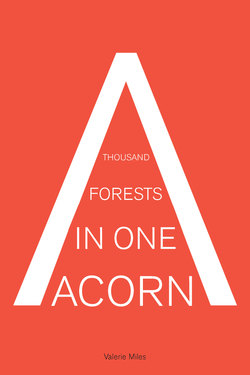Читать книгу A Thousand Forests in One Acorn - Valerie Miles - Страница 21
На сайте Литреса книга снята с продажи.
ОглавлениеTHE ACORN
THE TORTURE OF DOCTOR JOHNSON
In my work the fantastic has all the intentionality of reality. The core of Olvidado Rey Gudú is when his mother, while he’s still a boy, removes his capacity to love. She has been a victim of love, because in her lifetime she has only tried it with an old man. How does a thirteen-year-old girl fall in love with an old man? It turns out that what attracts her is a man with experience. And she pays dearly because the old man doesn’t fall in love with her, she’s the one who falls in love. And he treats her badly. She asks for it a little, it must be said, but in any case he treats her very badly. And so the only thing she wants is power. She hasn’t been able to get it, but her son will become King. Why does the mother take away his capacity to love? Lust for power. Because she has already renounced everything. Then Prince Almíbar crosses her path and satisfies her physically but doesn’t fill her spirit, her soul, because she has become a very ambitious person. That’s why she does what she does to her son, so he’ll never love. Because for her, love has been the source of everything bad. And her son must be a great king, a powerful man, what she had aspired to but failed at herself. To never love anyone. And she thinks she’s doing him a favor because obviously, like most mothers, she loves her son. But it’s a favor done for herself too, for her wounded pride, for her desires, her ambitions. It’s a gift she gives herself. As I once said: “Love is a wonderful mistake.”
IN CONVERSATION WITH THE DEAD
It’s very difficult to explain, I’d need an entire book for that. The book I’m writing now is called Diablos familiares. That says it all. My dead are my family demons. I belong to a generation in which “good” girls generally weren’t allowed to study. I was forbidden to go to university, but now I have an honorary doctorate. I got revenge! And so I have been very much an autodidact. I’ve also had the great fortune of meeting many people who have taught me and from whom I’ve learned a great deal throughout my life. I’ve also been shaped by my reading, my passion for literature. But I would have loved to be able to study Philosophy and Letters. And now I’d like to study Mathematics because I see some very interesting connections to poetry and music and those are two things I like a lot. Poetry has always influenced me and I read it now more than ever. Although I also must confess that I love crime novels [she laughs]. And I’m passionate about history, especially the history of the Middle Ages. I’ve immersed myself in the Arthurian sagas, living absorbed in that period for years.
CODA
You refer to your generation as the “shadow children” and you explain how important fairy tales were for them, and the phrase “once upon a time.” You started out writing social realism but over time you’ve shifted to the fantasy novel. Why?
Some women began to make significant inroads in literature in the postwar era. Carmen Laforet was the first, and although I’m often included in the same generation as her and Cela, she was older—I’m from the generation of the fifties. But it’s not entirely true to say that I’ve switched from realism to fantasy. It is, but not entirely. My intended style of writing forms part of the magic, you understand, of the magic of literature, of literature as invention. So that has always existed in my books and stories. But you have to take into account the time in which I had to live and develop as a writer. It was the Francoist era. First, when I was eleven years old the civil war broke out right in front of me and after I was fourteen, in my adolescence, I lived through a very long postwar period. And that left a mark on all of us, marked us decisively. This explains why I had to find a lung to breathe and to fight this man and his system. Pequeño tentro or Primaria memoria are realist, but not entirely. There is always a more poetic part. I think that social realism really killed Spanish literature for a while and I wanted to get away from it. I didn’t renounce my rebelliousness or my strong social criticism by writing literature instead of social reporting. I haven’t limited myself to telling, to narrating. I imagine. I invent. In any case, I have traveled a lot and I’ve seen how women are treated in the world and I’ve come to the realization that it’s not solely the heritage of Spain. But in a country like ours and at that time there were strong inherited prejudices.
Did this generation of “shadow children” lose their innocence because of what they saw so young?
I’ve known many people for whom it’s not that they’ve lost it, it’s that they never had it. But childhood is something that’s never lost. Childhood leaves a mark. I’ve often stressed that childhood, the boy or girl that we were, is something we have inside forever and it’s a very rich place for imagination and invention.
